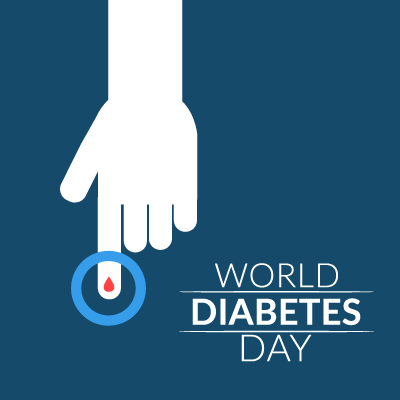The 2016 theme for World Diabetes Day is “Eyes on Diabetes.” Optical issues are a major symptom of this disease, and this year’s theme aims to improve awareness and visibility around the topic. How can you get involved? Read on.
Take your senior loved one for a screening
People may joke that eating too much sugar can lead to diabetes, but this condition is serious. That’s why it’s important to get screened for diabetes. According to the Centers for Disease Control and Prevention, around 8.1 million people in America don’t know they have diabetes. That’s 27.8 percent of all the people who live in the U.S. that have the disease. Early diagnosis is key in preventing serious side effects.
The American Diabetes Association and U.S. Preventive Services Task Force recommend risk-factor-based screenings. This means, if your senior loved one is at an increased risk of the disease he or she should seek out more frequent diabetes screenings. Risk factors include being obese, of advanced age, having a family history of diabetes and being members of minority ethnicities. Seniors should speak to their doctors about their potential risk for diabetes. Physicians can provide a frequency to follow for diabetes screenings.

Raise money for diabetes charities
Another great way to celebrate World Diabetes Day is to raise money for a diabetes charity. Some organizations fundraise to support medical research and treatment efforts while others aim at providing better care for people who have the disease. Look for local nonprofits or national groups like the American Diabetes Association or Children’s Diabetes Foundation. You can look for a specific cause within diabetes, such as veterans or teens as well. Do a fundraising run, ask for donations at school or work or even host an event like a silent auction. Donate the proceeds to a diabetes charity that you support.
Volunteer for a diabetes nonprofit
Raising money isn’t the only way to get involved in diabetes charities. Many of these organizations have physical locations where you and your senior loved one can volunteer. Offering your time is a great way to show your support. You two might be able to help out with a calling drive, assist with planning upcoming events or perhaps even share personal diabetes stories to educate others about the disease. Encouraging people to get screened is another key part of volunteering for these types of nonprofits. “Raising money isn’t the only way to get involved.”
Undergo a lifestyle change
Diabetes can be hereditary, but there are also lifestyle factors that can increase a person’s risk of developing the condition. Seniors should ask their doctors if adjusting their diets, adding some exercise or any other changes are necessary to prevent diabetes. The World Health Organization estimates that around 422 million people worldwide have diabetes, and expects that number to double in the next two decades. Living healthier lives with better diets and efforts to lose weight may prevent this drastic increase.
Look forward to more articles from Consulate Health Care on eye, foot and diet choices and diabetes in the future.
If you found an error, highlight it and press Shift + Enter or click here to inform us.



